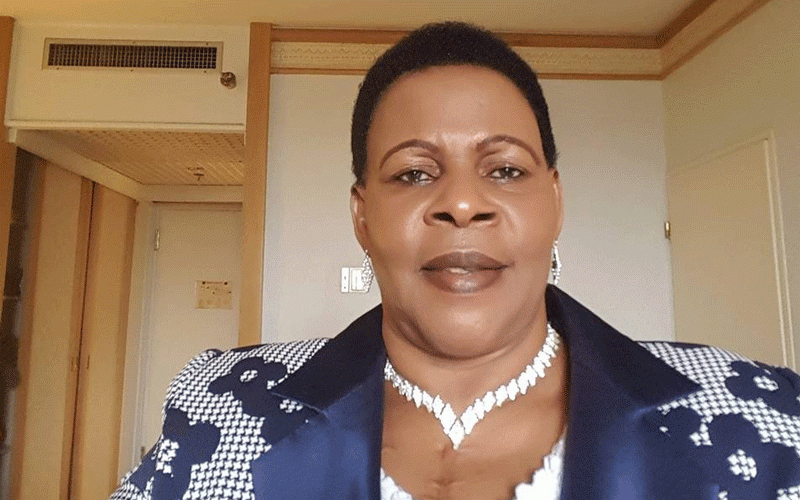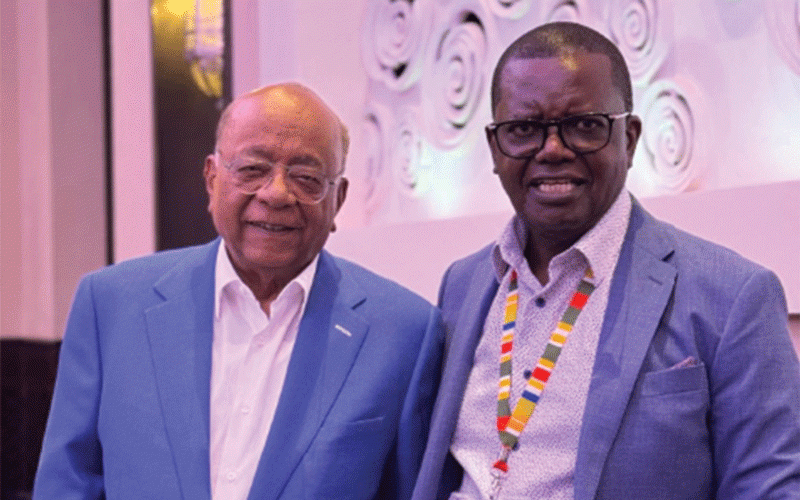
On Wednesday 12 December, the final United States Foreign Relations Committee hearing of the 115th Congress led by outgoing chairman, representative Ed Royce (R-CA) in Washington, DC convened a meeting entitled “Development, Diplomacy, and Defense: Promoting United States Interests in Africa.”
Testimonies were delivered by President Donald Trump’s officials, namely United States assistant secretary of state for Bureau of African Affairs, Tibor P Nagy, Jr, alongside United States Agency for International Development’s (USAid)’s senior deputy assistant administrator in the Bureau for Africa, Ramsey Day.
“Zimbabwe” came up.
It was debated, discussed, interrogated on, testified about in this hearing more than fifteen times by as many as ten legislators and Trump-administration officials. This wasn’t a sub-committee or small Press briefing. It was the full United States Foreign Relations Committee. Royce said in his opening statement: “Strengthening relationships in Africa has been a top priority for me at the Foreign Affairs Committee. I have long worked to improve the stability and economic prosperity of African nations — including through wildlife conservation and improved trade.
Africa presents several challenges and opportunities for the United States, which is what this hearing will explore. We need to get this right.”
The problem
If President Emmerson Mnangagwa is perceived as a despotic leader, caring little for the welfare of the people of Zimbabwe; unaccountable, undemocratic, autocratic governance with repressive legislation and oppressive policies, he will be met with massively consequential relations by the United States Trump government, a sentiment that has garnered bipartisan support from both republicans and democrats alike.
This committee carries out oversight and scrutiny of how United States policies (inside the United States) are directing diplomacy overseas (outside the United States). The actions of the Mnangagwa team will be massively consequential, as ranking member Eliot Engel (D-NY) pointed out that Zimbabwe “has shown little interest in enacting desperately needed reforms.”
- Chamisa under fire over US$120K donation
- Mavhunga puts DeMbare into Chibuku quarterfinals
- Pension funds bet on Cabora Bassa oilfields
- Councils defy govt fire tender directive
Keep Reading
Actions by the Mnangagwa team, such as earlier this year when 14 countries met in Harare, [Royce said]“talking about looking at the Yuan as a potential reserve currency”, are a threat to the United States national interests.
Wildlife trafficking came under scrutiny as the United States seeks to combat the threat posed by the illegal poaching and trafficking of elephants, rhinos and other animals — with the profits linked to extremist groups who can harm the American people.
The same day saw a bipartisan resolution introduced, urging China to maintain a ban on rhino and tiger parts. Congressman Royce stated: “Wildlife trafficking isn’t just a threat to rhinos, cheetahs and more; it’s a threat to United States national security. As one of the most lucrative criminal activities worldwide, wildlife trafficking generates revenues in the billions each year – funding terrorists and rebel groups. And China, home to a largest market in illegal wildlife products, has long been the biggest source of the problem.
Now is not the time to allow loopholes that only serve traffickers; now is the time to demand China makes good on promises to help stop poaching. I applaud Rep. McCaul for his work on this legislation as we keep conservation and anti-poaching initiatives a priority in Congress.”
Make no mistake, Zimbabwe is on the geopolitical battleground between the United States, China and Russia. Royce said several members on his committee have seen first-hand how China and Russia are “ramping up business investment, access to finance, arms sales and military partnerships” on the continent.
Bottom-line, chairman Royce’s view is, US “diplomatic, economic, and national security interests are at stake.”
Zimbabwe needs allies
Among the biggest sentiments, the concerns raised centred largely on:
Zimbabwe’s July elections; Engel said they’re keeping an eye on some seriously troubling trends when it comes to human rights, citing Zimbabwe where “July’s elections were marred by fraud and intimidation and where the government has shown little interest in enacting desperately needed reforms”.
Lack of repeal of laws such as the Public Order and Security Act (Posa) and Access to Information and Protection of Privacy Act (Aippa).
Illegal poaching and trafficking of elephants and rhinos is a big deal for the US Congress.
A meeting held in Harare earlier this year, 14 countries discussed adopting the Yuan as currency.
Programmes the United States government has supported include Africa Growth and Opportunity Act (Agoa), Electrify Africa, Pepfar and the Global Food Security Act. Day was positive highlighting, “The investments and commitment of the American people to the people of Africa are paying off, and USAid has set its priorities to capitalize on the region’s emerging opportunities.” He also said: “In 2016, a Pepfar assessment showed the first evidence of the epidemic becoming controlled in three key African countries: Malawi, Zambia, and Zimbabwe.
These same countries have also reduced new HIV infections by as much as 76% since the start of Pepfar. We are also seeing progress on the United States President’s malaria Initiative. In fact, this past January, during the 30th African Union Summit, Madagascar, The Gambia, Senegal and Zimbabwe were honored for reducing malaria cases by more than 20% from 2015 to 2016.” In terms of youth, Nagy spotlighted, “more than 60% of sub-Saharan Africa, 600 million people, is below the age of 25, representing 40% of sub-Saharan Africa’s unemployed.”
On trade on the African continent Nagy testified that, “Under the African Growth and Opportunity Act, or Agoa, from 2000 to 2016, United States investment in sub-Saharan Africa increased from seven to 29 billion dollars, providing opportunities for hundreds of thousands of Africans. Since 2000, United States exports to Africa rose from six to more than 14 billion dollars last year, and United States imports from Africa totalled nearly 25 billion dollars, a total two-way trade of 39 billion dollars in 2017, up 5,8 billion United States from 2015.”
Progress Zimbabwe can make
Repeal Posa, Aippa and implement political, economic and social reforms without delay.
The Mnangagwa team, the Parliament of Zimbabwe’s Portfolio Committee on Defence, Home Affairs and Security Services with opposition leaders’ buy-in, in particular, must be innovative drivers of a regional military security force similar to the G5 Sahel Joint Force.
The government of Zimbabwe must invest in health and education with fiscal transparency.
Cease and desist from “predatory” behavior on its citizens. This sentiment, mentioned by the White House, echoed in the Congressional hearing, is of significance because the remarks are welcomed by right-leaning conservatives as well as democrats; it’s bipartisan consensus. Royce opened the hearing, stating, “Despotic leaders continue to exploit power and pilfer resources for personal gain, ignoring pressing social and economic needs.” He reaffirmed Congress would remain “steadfast in our support of the men and women — Americans and Africans – working to advance democracy, stability, peace; to ultimately create better lives.”
The government of Zimbabwe and its Parliament must “have predictable policies and laws conforming to international standards,” Nagy advised. Zimbabwe should help end wildlife poaching and illicit trafficking of rhinos and elephant.
Have a sustainable plan for entrepreneurial youth and women’s economic empowerment.
What next?
Nagy confirmed that a Mnangagwa trade delegation visited Washington, DC recently.
His State department is not budging from a desire to see a full range of economic reforms that are inextricably linked to political reforms, beginning with immediate repeal of Posa and Aippa. With that said, Zimbabwe can be doing a whole lot more on boosting “development, diplomatic and defense” (the 3Ds from the Bush administration) with the United States government to provide security, stability and prosperity for the people of Zimbabwe. Adopt reforms
It goes without saying, Zimbabwe’s ruling party should swiftly, seek innovative ways for inclusive dialogue of opposing stakeholders to harvest ideas it may not have and create what Nagy called, “transparency and fairness in commercial environments to attract more business and have predictable policies, laws complying with international standards and a credible dispute resolution process”.











